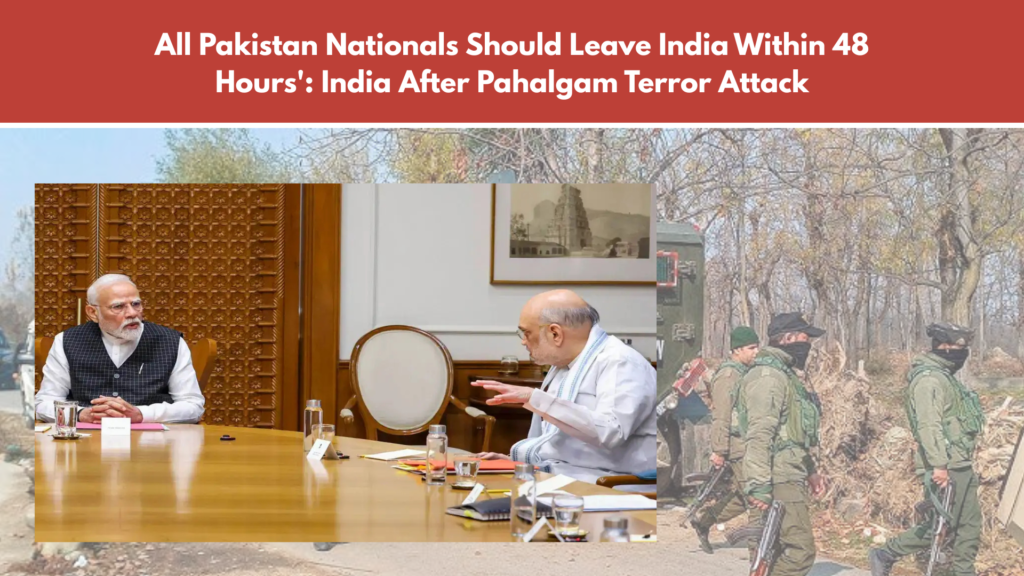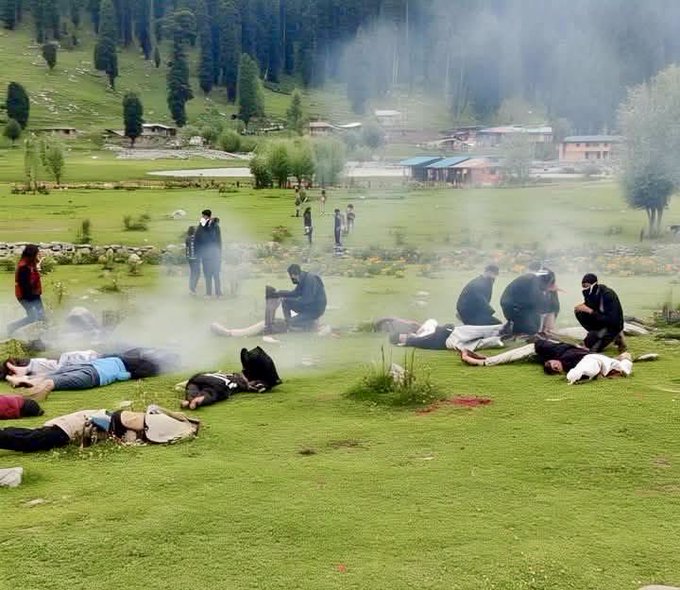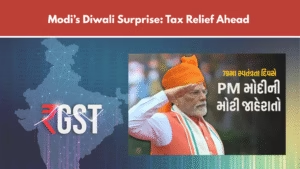After Pahalgam Attack, India Gets Tough on Pakistan

Pahalgam : 28 persons, mostly tourists, were killed in a devastating terror assault in Pahalgam, Jammu and Kashmir, on Tuesday.
Following the deadly terror incident in Pahalgam,The Pahalgam Attack in Jammu and Kashmir, which killed 28 people, predominantly tourists, India on Wednesday demanded all Pakistani nationals to leave the country within 48 hours.
During a media briefing, Foreign Secretary Vikram Misri declared that diplomatic relations with Pakistan would be lowered, and that its military attachés would be expelled. He also discussed the Wednesday night meeting of the Cabinet Committee on Security (CCS).
Full Statement about India’s Foreign Secretary Vikram Misri :
This evening, the Prime Minister presided over a meeting of the Cabinet Committee on Security (CCS). The terrorist incident at Pahalgam on April 22, 2025, which claimed the lives of 25 Indians and one Nepali national, was thoroughly explained to the CCS. There were several others hurt. In addition to expressing its sincere sympathies to the victims’ families and wishing for the injured to recover quickly, the CCS strongly denounced the Pahalgam Attack.
Numerous governments worldwide have strongly expressed their solidarity and support, and they have categorically denounced this terrorist attack. The CCS expressed gratitude for the thoughts, which show that terrorism will not be tolerated.
Pahalgam Attack :
The cross-border connections of the terrorist act were highlighted in the briefing given to the CCS. It was mentioned that this attack followed the Union Territory’s successful elections and consistent advancements in economic development and growth.

The following actions were taken by the CCS in recognition of the gravity of this terrorist attack from sources :
(i) The 1960 Indus Waters Treaty will remain in limbo until Pakistan can genuinely and irrevocably abandon its endorsement of cross-border terrorism.
(ii) The Integrated Check Post Attari will be closed as of right now. Those who have crossed over with valid endorsements may do so once more before May 1, 2025.
(iii) Pakistani nationals shall not be permitted entry into India under the SAARC Visa Exemption Scheme (SVES). All prior SVES visas issued to Pakistani nationals are deemed withdrawn. Every Pakistani national in India who possesses an SVES visa has 48 hours to leave the nation.
(iv) Persona Non Grata is the designation given to the Defence/Military, Naval, and Air Advisors at the Pakistani High Commission in New Delhi. They can depart India in a week. The Indian High Commission in Islamabad will no longer have its own defense, navy, and air advisors. These positions are considered revoked in their respective High Commissions. Additionally, five of the Service Advisors’ support workers will be removed from both High Commissions.
(v) By May 1, 2025, additional cuts will be made to reduce the High Commissions’ overall strength from the current 55 to 30.
After reviewing the overall security situation, the CCS instructed all forces to remain vigilant. It decided that the attack’s perpetrators would face consequences and their sponsors would be held accountable. India would continue to pursue individuals who have perpetrated acts of terror or plotted to enable them, as seen by the recent extradition of Tahawwur Rana.
“Pakistani who live in India”
For a number of reasons, including employment, education, familial relationships, and enduring cultural or personal ties, Pakistani nationals have frequently chosen to live in India. Many Pakistanis have found a home in Indian society, living in silence and making contributions to their communities, despite the two nations’ complicated and frequently contentious relationship.
They may, however, come under more scrutiny or criticism at times of elevated political or security tensions, such as following terrorist Pahalgam attacks, and they may have to deal with questions regarding their status and future in the nation. These incidents draw attention to the precarious equilibrium that exists between national security, diplomacy, and the lives of those caught in the middle.




